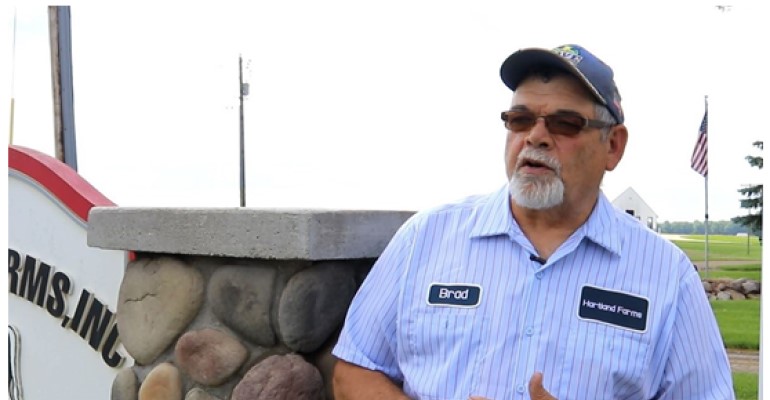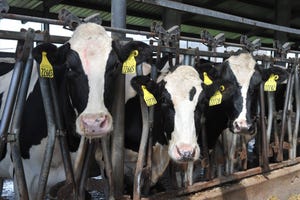Groups ask Perdue to head off looming 'forage disaster'
Eastern Corn Belt states seek approval of emergency provisions allowing planting and harvesting of forages without restrictions.
June 6, 2019

Hoping to head off a “rapidly emerging forage crisis for livestock farmers across the Midwest,” a multi-state coalition of agricultural organizations submitted a written request to Agriculture Secretary Sonny Perdue, seeking approval for emergency provisions allowing the planting and harvesting of forages on prevented plant acres without date restrictions.
The request from farm bureaus in Michigan, Indiana, Wisconsin and Ohio, along with the Michigan Cattlemen’s Assn., Dairy Farmers of America and Michigan Milk Producers Assn., comes on the heels of two weather-related extremes.
Severe winter-kill of alfalfa fields throughout the Upper Midwest, followed by record-breaking rainfall this spring, not only prevented the planting of corn and soybeans crops but the timely harvest of alfalfa fields that did survive.
“Our dairy and livestock farmers are reporting a very serious forage and feed shortage for this year,” Michigan Farm Bureau (MFB) livestock specialist Ernie Birchmeier said. “We understand that portions of Michigan and Wisconsin and have severe winter-kill damage — as high as 80%, depending on location.”
Birchmeier said the loss of alfalfa forage and quality is compounded by concerns that delayed corn planting will take a heavy toll on corn silage tonnage this fall as well. “Forage inventories were already strained before the magnitude of winter-kill damage could be determined; delays in timely corn planting only make a bad situation worse,” he said.
While current prevented plant provisions do allow planting and harvesting of potential forage crops, those provisions come with some impractical date requirements for both timely planting, which currently is Aug. 1, and a harvest date restriction of Nov. 1, which is long after a typical killing frost in the Upper Midwest.
According to MFB national legislative counsel John Kran, the request specifically seeks immediate provisions to:
Allow planting and normal harvest and grazing of forage crops/cover crops on prevent plant acreage for 2019 without penalty and without date restrictions.
Allow harvest and grazing of forages on Conservation Reserve Program ground and all eligible acres for 2019 without penalty and date restrictions.
“Many of those same farms that lost or can’t harvest their alfalfa due to excessive rain also can’t plant corn for silage, and many of those acres will likely be prevented plant as well,” Kran said. “Many of those prevented plant crop acres are adjacent to livestock farms and could be planted to alternative forages for harvest as livestock feed, but quick administrative action is needed to allow this to happen.
“We are not asking for a permanent change to prevented plant provision but simply a one-time allowance due to the unprecedented weather challenges dairy and livestock farmers are facing across the country along with cash crop farming operations in 2019,” he added.
Birchmeier added that many dairy farmers have indicated that, unless emergency provisions are made in the next 30 days, cows will eventually have to be sold.
“This is not an isolated incident, as this story is echoed across the Midwest and Upper Midwest. In fact, the scale of the forage and feed crisis is considered unprecedented,” he said. “For many farmers, this decision will be the deciding factor of whether their multi-generational family farms continue.”
You May Also Like



